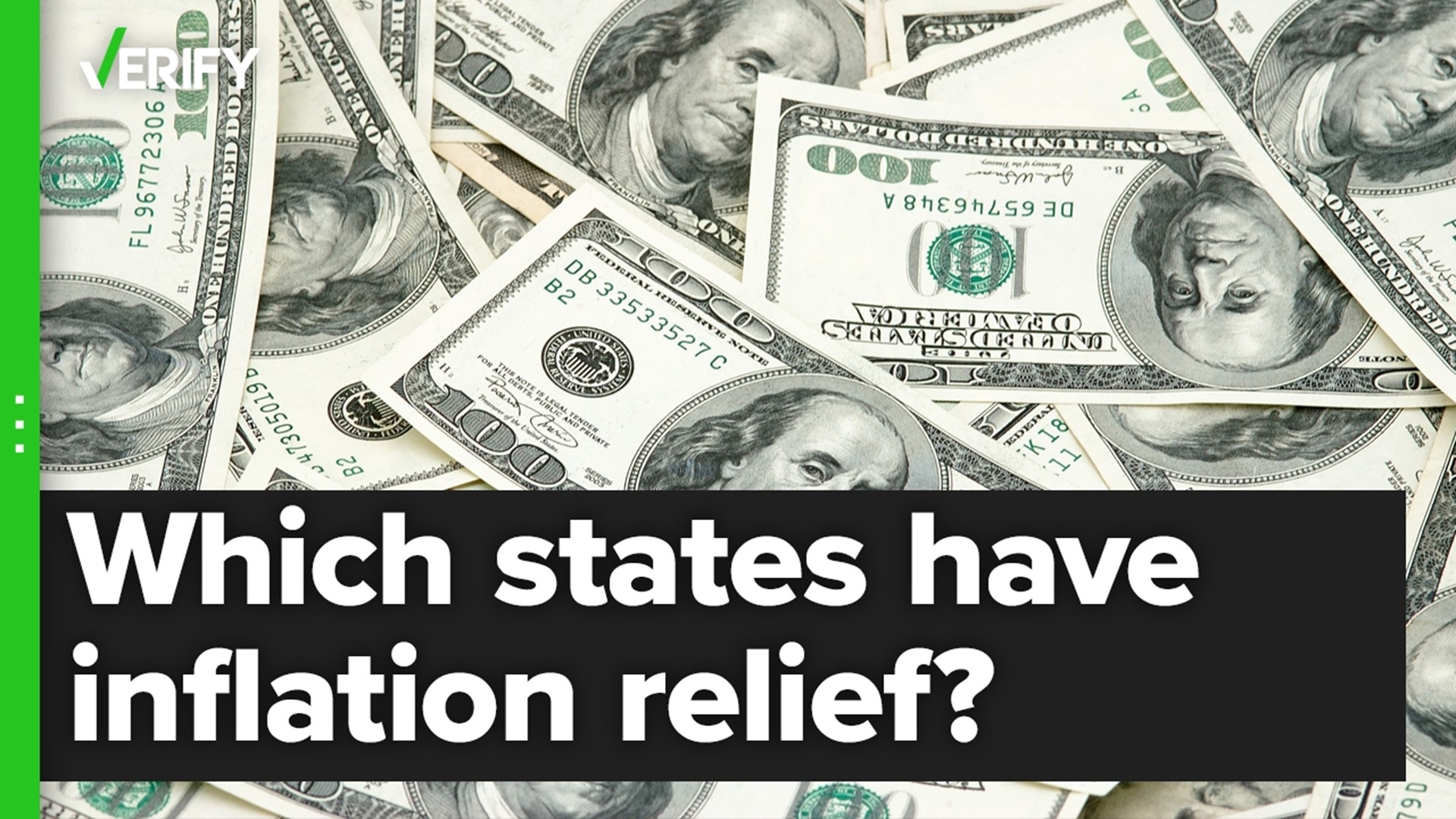INDIANAPOLIS — Indiana’s surging tax collections over the past year have pushed state government’s budget surplus up more than 50% to about $6.1 billion as legislators prepare to take up a proposal for a second round of refund payments from that surplus, state officials announced Friday.
The jump from last year’s record high of $3.9 billion in cash reserves comes as the Republican-dominated Legislature is set to consider GOP Gov. Eric Holcomb’s plan to distribute $225 payments to taxpayers for what he calls “inflationary relief.”
Democrats have questioned the effectiveness of the $125 refunds that have been slowly distributed since May and have pushed to suspend Indiana’s 62 cents-per-gallon in gasoline taxes, saying that would provide more immediate relief from sky-high inflation.
Some Republican legislators have raised concerns about spending reserves on refunds when inflation is increasing the cost of state construction projects, but Holcomb’s top budget adviser said the new refund plan costing the state about $1 billion was a “prudent” proposal.
Tax collections for the budget year that ended June 30 rose about 9% from the previous year and were about 6% higher than state officials projected in December.
Office of Management and Budget Director Cris Johnston said conservative projections see the state’s surplus topping $4 billion next year after the proposed payments and a planned $2.5 billion transfer to a teacher pension fund.
“I think he looked at the billion dollars as a reasonable amount of money based on where we exceeded the forecast at $1.2 billion this year and is comfortable with that,” Johnston said.
House Speaker Todd Huston said in a statement that House Republicans intended to approve the refund plan, but the state Senate’s top Republican was more cautious.
Senate President Pro Tem Rodric Bray said state reserves will protect Indiana if economic growth slows.
During the special legislative session slated to start July 25 “Senate Republicans are considering a package that can provide relief to Hoosiers in multiple ways while continuing to pay down our outstanding debt,” Bray said.
Meanwhile, the state has yet to distribute more than half of the $125-per-taxpayer payments due under an automatic refund law triggered by last year’s large surplus that was boosted by federal COVID-19 relief funding.
The state Department of Revenue said it has paid about $250 million in direct deposits of the estimated $545 million to be distributed. But printed checks to some 1.7 million taxpayers who haven’t supplied bank account information likely won’t begin going out until mid-August.
State Auditor Tera Klutz said the company printing the checks has faced paper supply delays and that it would take about 35 business days to prepare all the checks once printing begins.
Democratic legislators maintain such processing troubles could delay the proposed second round of payments for months and that Holcomb’s plan could deprive payments to perhaps nearly 1 million adults who don’t file tax returns because their income is limited to sources such as Social Security and disability payments.
“Every Hoosier, in some fashion, has helped to contribute to that surplus,” Democratic Rep. Terri Austin of Anderson said. “Whether you’ve filed taxes as an income tax filer or not, you pay taxes every time you go to the grocery store and buy nonperishables, you pay taxes on gasoline every time you fill up your car.”
The top Democrat on the budget-writing House Ways and Means Committee called the state surplus “bloated” and said the Legislature had a “golden opportunity” to boost spending in areas such as public health and education.
“I harbor great fears that Republicans will forgo investments in people and instead invest in our credit rating by paying down debts the state is already working on paying,” Democratic Rep. Greg Porter of Indianapolis said. “A good credit rating is worthless if our people are sick, receiving a subpar education or unable to support their families.”

